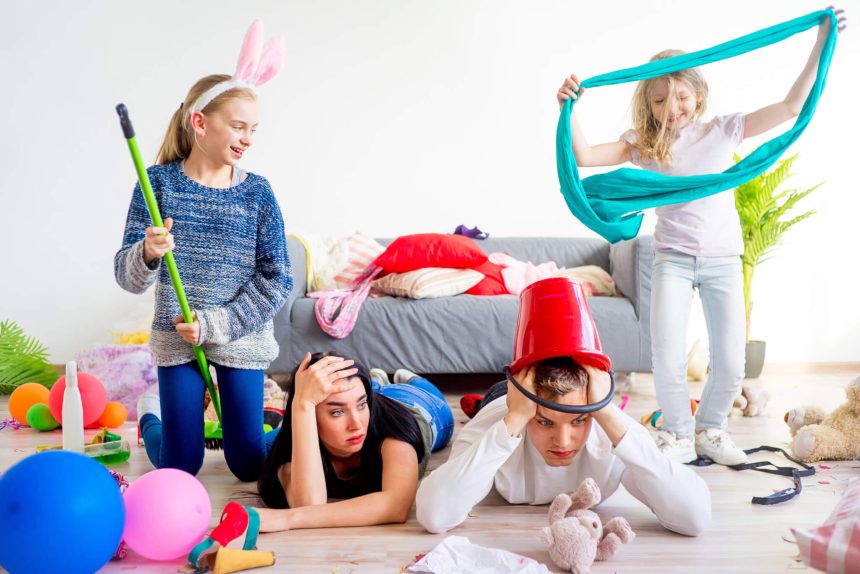The prevailing belief in many parts of the world is that having children is key to happiness – and that people who don’t have children are unfulfilled in their lives.
But is this really the case? The answer to this question is both simple and complex – and the fulfilment you feel in your life, whether you decide to have kids or not, depends on many complex factors.
Let’s look first at the simple answer – which is no, you don’t need to have children to be happy and fulfilled.
Studies in women who are child-free by choice show most feel they have a good sense of identity and individuality. They don’t feel defined by their role within the family, and feel they have more freedom and control over their bodies, life and future. Child-free women also report greater financial stability – although higher socioeconomic status isn’t necessary to be satisfied with the decision to be child-free.
Women and men who are child-free are also less stressed on average, and report greater satisfaction in their marriages.
There’s limited research on single men and their experience of being child-free – and even less on the transgender or queer experience of being child-free. But one study of men who were child-free by choice reported most were satisfied with their decision and happy to have more freedom in their life. Only a small number expressed regrets about their decision – largely because they wouldn’t have a legacy.
However, there’s a risk that child-free men may experience a reduction in overall life satisfaction in older age if they lack social support.
The parenthood paradox
Things get a little more complicated when we look at the decision to have children.
While parents can certainly be happy and fulfilled in life, the satisfaction they feel with this decision typically unfolds over time – and can also depend on many factors they can’t control.
Initially, many parents actually experience a temporary decrease in wellbeing after having a child – a phenomenon known as the “parenthood paradox”. This is because a new baby can come in the way of many basic needs – such as sleep, eating well and seeing friends. This can be a recipe for discontentment.
Straight women also report more unhappiness when they become parents compared with men. This may be because the burden of care tends to fall disproportionately on women.
But having good family and social support, an active and equally involved co-parent, and living in an area that has work-family supportive policies can all offset the stresses and costs of parenting.
This probably explains why women in Norway don’t report a loss of happiness when they have children, as Norway has many family-friendly policies which make it possible for both parents to raise children and have careers.
While parenting can be tough, that doesn’t mean it can’t still lead to happiness, joy and greater meaning in life. The parenting experience can even lead to a profound form of wellbeing called eudaimonic wellbeing. This is the feeling you have lived a life worth living, which is distinct from short-term happiness.
Both men and women can experience positive eudaimonic wellbeing when they become parents. But for women, the boost in eudaimonic wellbeing they experience also depends on how balanced the parenting duties are with their partner.
Facing regret
Another major thing people worry about is whether they’ll regret not having children.
Reassuringly, research in child-free older adults shows many report high life satisfaction and resiliency against poor mental health.
It seems the biggest key in being happy with your decision to have or not have children depends on whether you felt in control of that decision. When we feel we’ve chosen our path, we tend to accept our decisions and be happier about them.
Yet what if that choice has been taken away from you – and you wanted a child but were unable to have one? Can you be happy then? Our research shows the answer is a resounding yes.
We investigated the impact of childlessness on 161 UK-based women who wanted to have children but couldn’t for various reasons – such as not being able to find a partner or infertility. Participants were aged between 25 and 75.
We found that on average, the participants’ wellbeing was no different to that of the general public. While 12% languished (meaning their lives felt aimless), 24% were flourishing psychologically – meaning they reported the highest level of mental health. The remainder experienced moderate levels of wellbeing.
Interestingly, for some, the struggle to have a child resulted in post-traumatic growth. This refers to positive psychological changes that happen after a traumatic event. Women with the highest levels of wellbeing said being able to focus on new possibilities in their lives, outside of being a parent, helped them improve their wellbeing.
Studies in men who have been unable to have children due to infertility show many experienced sadness as a result – though this sadness did reduce as they got older. But similar to women who are involuntarily childless, finding ways of re-framing their identify and role in society outside of fatherhood helped many find meaning and satisfaction in their life.
So, does parenthood make us happier? Does childlessness make us miserable? The answer to these questions isn’t as simple as it seems. The happiness or fulfilment we experience depends on so many factors, many of which are out of our control. While the way you choose to make meaning in your life is indeed a key factor, so too is the social support you have to become a parent, and the political climate you live in.




